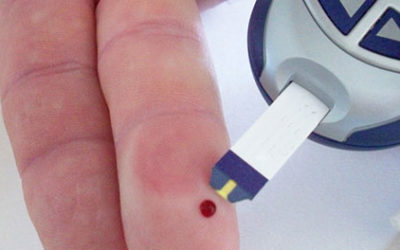Xylitol has a lot of benefits, but it’s most commonly known as a sugar substitute. Xylitol is usually made from corncobs or from trees like birch. It’s similar to sugar in sweetness but contains 40% fewer calories. Here are four unexpected things you might not know about xylitol.
Number One – Xylitol has a low glycemic index
The glycemic index is used to measure how quickly foods raise your blood sugar levels. This is an important tool for diabetics. Xylitol is rated at a seven whereas normal table sugar rates between a 60 and 70.
Number Two – It Reduces Dental Decay
One of the greatest perks of xylitol is that the cavity causing bacteria in your mouth cannot digest it. Which means the bad bacteria essentially “starve.” In fact, studies have shown that replacing sugar with xylitol or adding it to your diet can reduce tooth decay and cavities by as much as 30 to 85%, depending on how often you put it in your mouth.
Number Three – Boosted Collagen Production
Dietary xylitol has been shown to increase the amounts of newly synthesized collagen in your skin. Collagen is a naturally occurring protein found in skin and is associated with plump, youthful appearance.
Number Four – It Increases Bone Strength
Xylitol increases absorption of calcium in your digestive system. This is good for your teeth and may also protect against osteoporosis.
Number Five – It Has Prebiotic Benefits
Xylitol appears to have prebiotic benefits, meaning it helps feed the friendly bacteria in your gut. Some doctors even find hope that xylitol and erythritol might be able to counter autism. They see the increases in this condition tied to comparable increases in propionic acid, a common preservative that is also made by harmful gut bacteria, which can thrive after a round of antibiotics. When propionic acid is injected into the brains of lab rats they rapidly develop many autistic behaviors. These two sugar alcohols remove these harmful bacteria from the GI tract.
These benefits can also be seen by those eating what is called the Paleo diet. Fossils from this time period showed both excellent teeth and evidence of xylitol metabolizing bacteria in their stool. If one persists in this diet by eating more cellulose rich root vegetables they will likely also feed these beneficial bacteria in their guts.
While not a benefit, an important fact about xylitol is that it can be toxic to dogs. It’s important to keep any products containing xylitol out of reach and preferably in a closed area like a drawer or cupboard.
Related Articles
Natural Sugar Substitutes for Diabetics and Prediabetics
With so many options available, what’s the best natural sugar substitutes for diabetes? Unfortunately, the number of people with diabetes continues to rise. In fact, according to the United States Centers for Disease Control and Prevention, or...
A GRANDMOTHER’S CURE FOR EAR INFECTIONS: My View of Xlear – From the Beginning
Grandmother: Jerry Bozeman Grandfather: Lon Jones D.O. Infant: Heather Once upon a time there was a lovely, loving, but frustrated grandmother who was threatening to kidnap her 6 month old granddaughter to save her from her doctors. They were continuing the...
Does Xylitol Make a Good Sweetener?
Health conscious people recognize that sugar and artificial sweeteners present serious problems for your body. Over the years, artificial sweeteners have been linked to everything from neurological disorders to cancer, and more. While the results of these studies are...
Great Ways to Use Xylitol as a Sugar Substitute
Xylitol sugar substitute options are almost endless. If you’ve never used xylitol, then you are in for a treat, literally! The different ways that you can use xylitol is nothing short of amazing. Let’s take a look at why this natural sweetener deserves a place in any...
The Benefits of Xylitol
Many people have still not heard of or used xylitol, but the benefits of xylitol are simply undeniable. What is it that makes xylitol so useful? Xylitol is an all-natural sweetener that has been studied for decades. The conclusion of studies...










Does xylitol help with dry mouth caused by prescription medications?
Hi Richard,
Yes, xylitol can help with dry mouth. Here is additional information on dry mouth and xylitol products.
http://www.xlear.com/blog/causes-effects-dry-mouth/